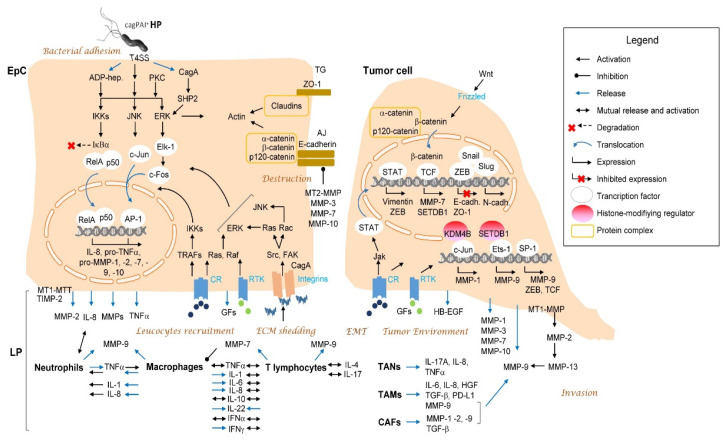Figure 1.
Signaling pathways pivotal for MMPs expression and MMPs-related processes in gastritis and gastric cancer. In tumor cell, the NF-κB, JNK and ERK MAPK pathways activated in response to H. pylori and cytokines are not shown for simplicity. The transcription factors and their regulators important for expression of the EMT-related genes and discussed in the review are depicted in the tumor cell. The immune cells are recruited to the tissue and release a big number of mediators, including MMPs. MMPs from different cells populations activate each other, participate in matrix remodeling, regulate focal adhesion complexes and shed proteins in cellular junctions. It leads to disturbances in the cellular contacts and restructures actin, which impacts the cellular motility. MMPs can also activate cytokines and growth factors embedded within the extracellular matrix. In the tumor microenvironment, both cancer cells and tumor-associated immune cells keep producing the growth factors and MMPs, supporting the motility and invasion of tumor cells. AJ, adherens junctions; GFs, growth factors; CR, cytokine receptor; ECM, extracellular matrix; EMT, epithelial–mesenchymal transition; EpC, epithelial cell, HP, H. pylori; LP, lamina propria; RTK, receptor tyrosine kinase; TGs, tight junctions.

